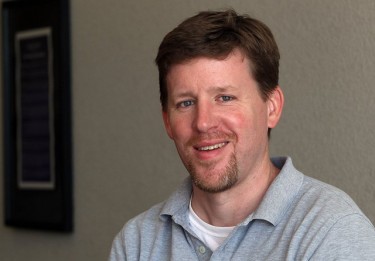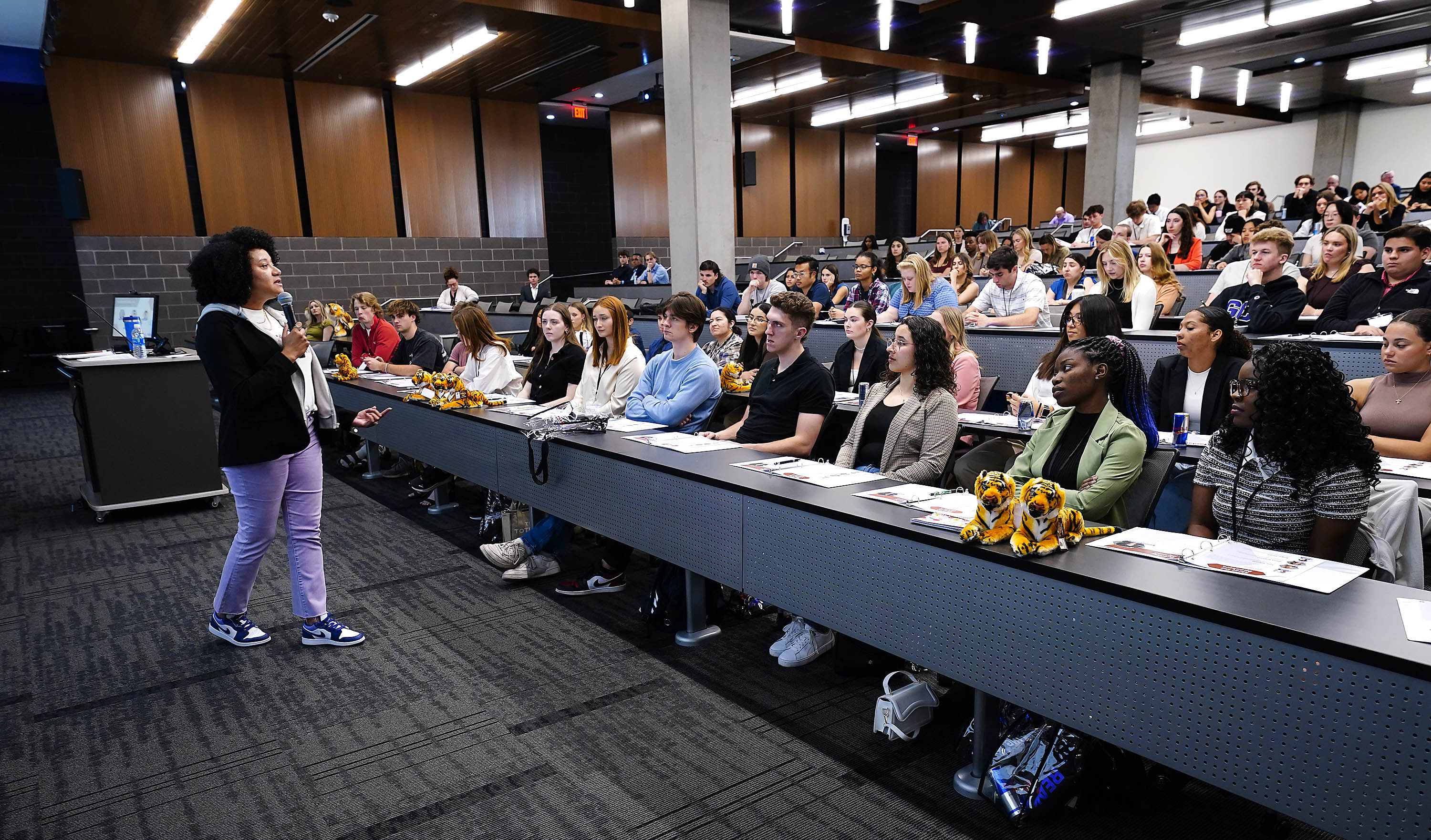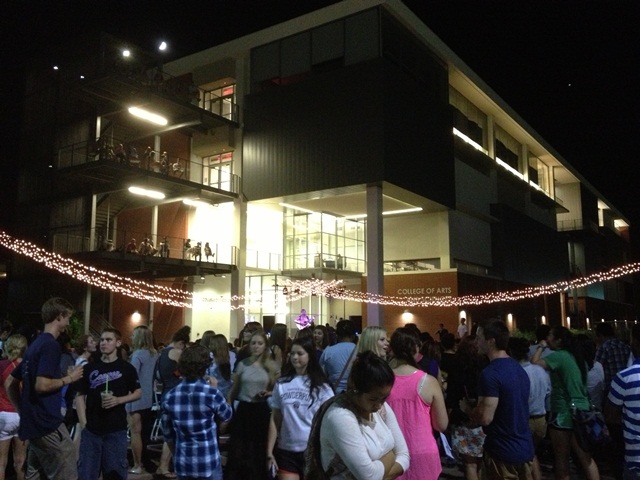Story by Michael Ferraresi
Photo by Darryl Webb
GCU News Bureau
When Matt Hopkins moved his family to Arizona, he briefly found himself shepherding shopping carts at Costco to help make ends meet.
The gig was a departure from his work as a pastor in Chicago. But he prayed through the transition to metro Phoenix, grew closer to God through the uncertainty and earned a job as an assistant admissions director at Arizona Christian University for five months.
Five months was all he needed to understand his true passion as a mentor would be better cultivated at GCU. He wanted to shepherd students.
Hopkins, 39, joined GCU’s Student Life office just two weeks ago as the University’s first full-time judicial officer charged with overseeing non-academic student disciplinary review. He will review cases of students accused of hiding alcohol or drugs in their dorm rooms, vandalizing school property or violating other Student Life policies.
But unlike a law enforcement officer or judge might do in many real-world situations, Hopkins said he will try to “redeem those mistakes” by walking with students through the process, providing honest criticism and giving them options on how to avoid further discipline.
“I don’t want to turn this into a guillotine position where we’re cutting people left and right,” said Hopkins, who speaks with the soothing, calming tone of someone with experience mentoring young adult students.
“If they make mistakes, there may be consequences that are associated with that,” Hopkins said. “But what can we take away from that? What can we learn from that?”
GCU expects to have nearly 2,800 students living on campus this fall. That growth includes the challenge of managing more students -- and potentially more misconduct than in years past.
Policy determines major, minor offenses
Student misconduct cases vary by major and minor offenses, according to the Student Life Discipline Committee Policy. An alcohol-related first offense could result in a $150 fine and 20 hours of community service. Students found responsible for a third alcohol offense lose their housing privileges and are “banned from all residential areas on campus,” according to the policy.
Illegal drugs, paraphernalia and “spice” synthetic marijuana can result in stiffer penalties. A second drug offense results in the same ban from student campus life.
Repeat offenders facing serious penalties such as suspension or expulsion go before Hopkins and a six-person Student Life Discipline Committee, which includes two residence directors, two students and other Student Life officials.
Hopkins said the process can be emotional for students. His challenge will be finding an effective balance of authoritativeness and compassion.
“I’m not going to be staying on the dorm floors,” Hopkins said. “And just by appearance of my title, it’s going to carry a certain stigma. The challenge is going to be on me to connect with students.”
Student Life Director John-Paul Reiger said Hopkins brings full-time focus to the student discipline process, which previously was handled by Residence Life Director Joe Brooks and Dean of Students Pastor Tim Griffin. The personnel shift frees up Brooks to focus on wider residential life issues.
Hopkins’ strong background as a Christian pastor was a key factor in his hire, but Reiger said he also was drawn to Hopkins’ personality in multiple interviews. He said Hopkins asked great questions and clearly had done his homework about GCU’s progress as a University.
“He knows what it means to sacrifice and take care of people,” Reiger said.
Hopkins is originally from Glen Ellyn, Ill., a suburb of Chicago. He moved to Arizona with his wife, Ruthanne, and sons, Justin, 14, and Nathan, 7, from Chicago, where Hopkins earned his Master’s of Divinity degree from Moody Bible Institute.
Family lived in Kenya in late 1990s
Moving to Africa was easier than coming to Arizona, Hopkins said. His wife of 16 years is a Coptic Christian Egyptian who grew up in Sudan. So when the family lived in Kenya, they had family comparably closer than they do now in Phoenix.
The Hopkins family lived in Nairobi in 1998, just a few miles from the U.S. embassy when it was bombed by terrorists. The attack killed more than 200 people, and a similar bombing hit a U.S. embassy in nearby Tanzania the same day.
Yet Hopkins said it’s in those hard times when he has connected with God on a deeper level. He feels closer to his family through the turbulence of the move to Arizona.
As he grows closer with those around him at GCU, he hopes to develop a new connection.
Contact Michael Ferraresi at 639.7030 or [email protected].















































